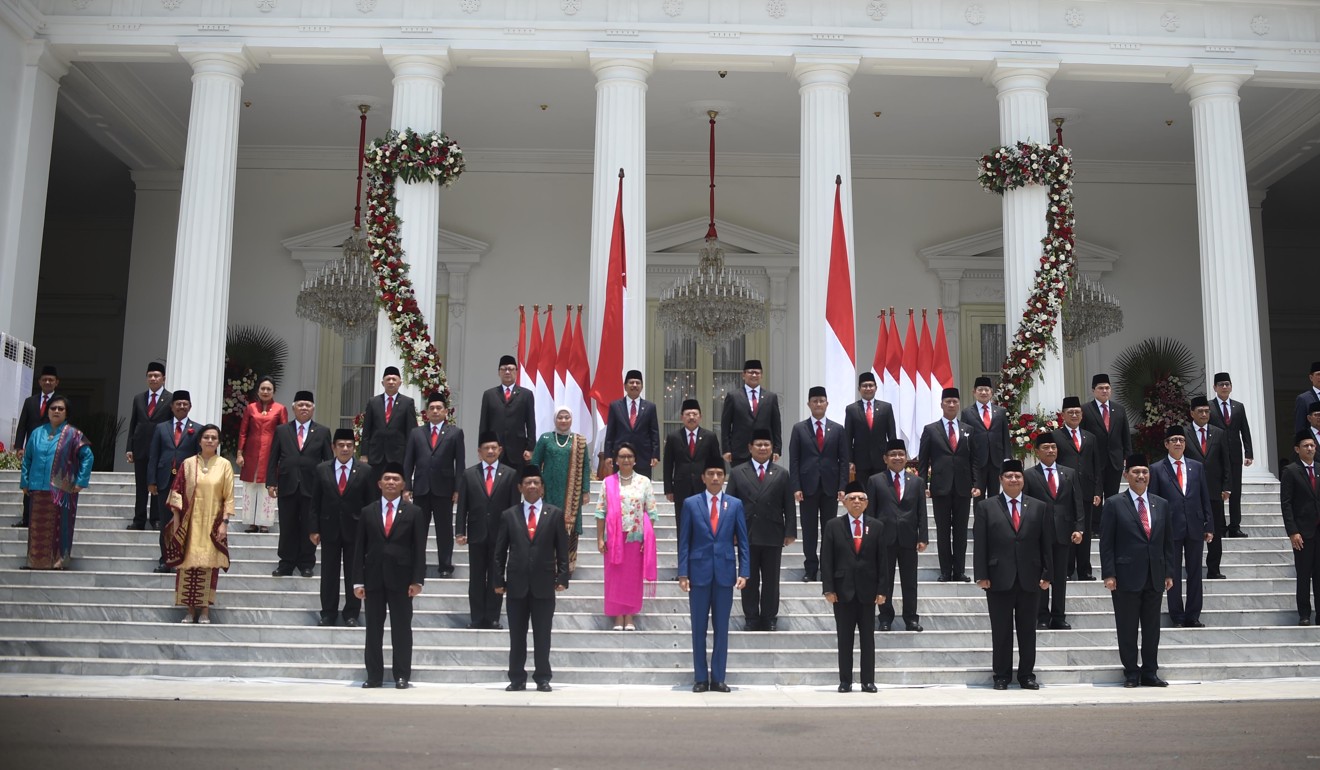
While Jokowi’s critics question his cabinet choices, the markets have responded positively
- The Indonesian president’s decision to include his arch rival Prabowo has not impressed everyone but it shows he wants stability to push forward with his development goals
- He’s retained old hands in key roles but has also introduced new faces, notably to oversee education, tourism and state-owned enterprises
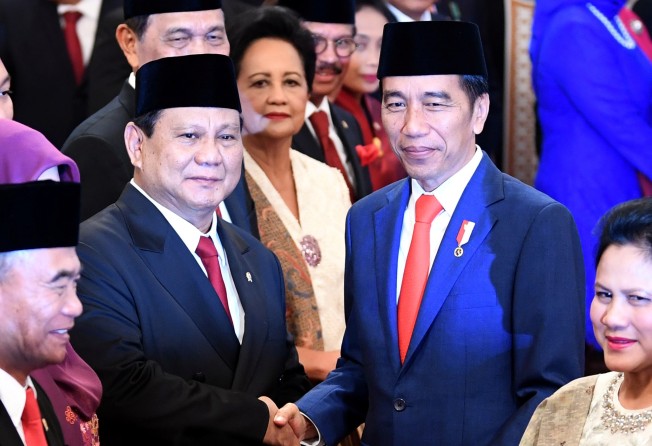
The composition of Indonesian President Joko Widodo’s new cabinet indicates his aim to consolidate his power base by having a mix of politicians and professionals, most notably including his former arch rival Prabowo Subianto. Prabowo lost the bitterly-fought April election to Widodo, popularly known as Jokowi.
For Jokowi, ensuring political stability through national reconciliation is vital. He has a critical development agenda to implement and wants to avoid unrest – such as the recent protests waged by thousands of students in opposition to legal amendments that they contend would cripple the country’s anti-corruption agency.
As Jokowi said during his inauguration last Sunday, his new cabinet of 34 ministers plus four minister-level officials will work with him to “move towards an advanced Indonesia”, focusing on five development priorities, including improving human resources and promoting higher value-added economic activities. These efforts are all aimed at pushing Indonesia into high-income status, with a target annual income per capita of US$22,000 by 2045, from the current US$3,900.
Underperformers will face the sack, he said. In his first five-year term, Jokowi reshuffled his cabinet four times.

Not everyone agrees with the composition of the new cabinet line-up announced on Wednesday.
The Jakarta Post on Thursday published a front-page article on the list of ministers with the headline: “Jokowi’s new Cabinet fails to impress”.
Critics have asked if Jokowi is compromising too much by awarding posts to party politicians, especially from Prabowo’s Gerindra, and are wondering what deal was struck to get them to agree.
Prabowo, an ex-general and the chairman of the Gerindra party, has been given the post of Defence Minister, managing a ministry with the biggest budget – US$9 billion – in the 2020 state budget allocation.
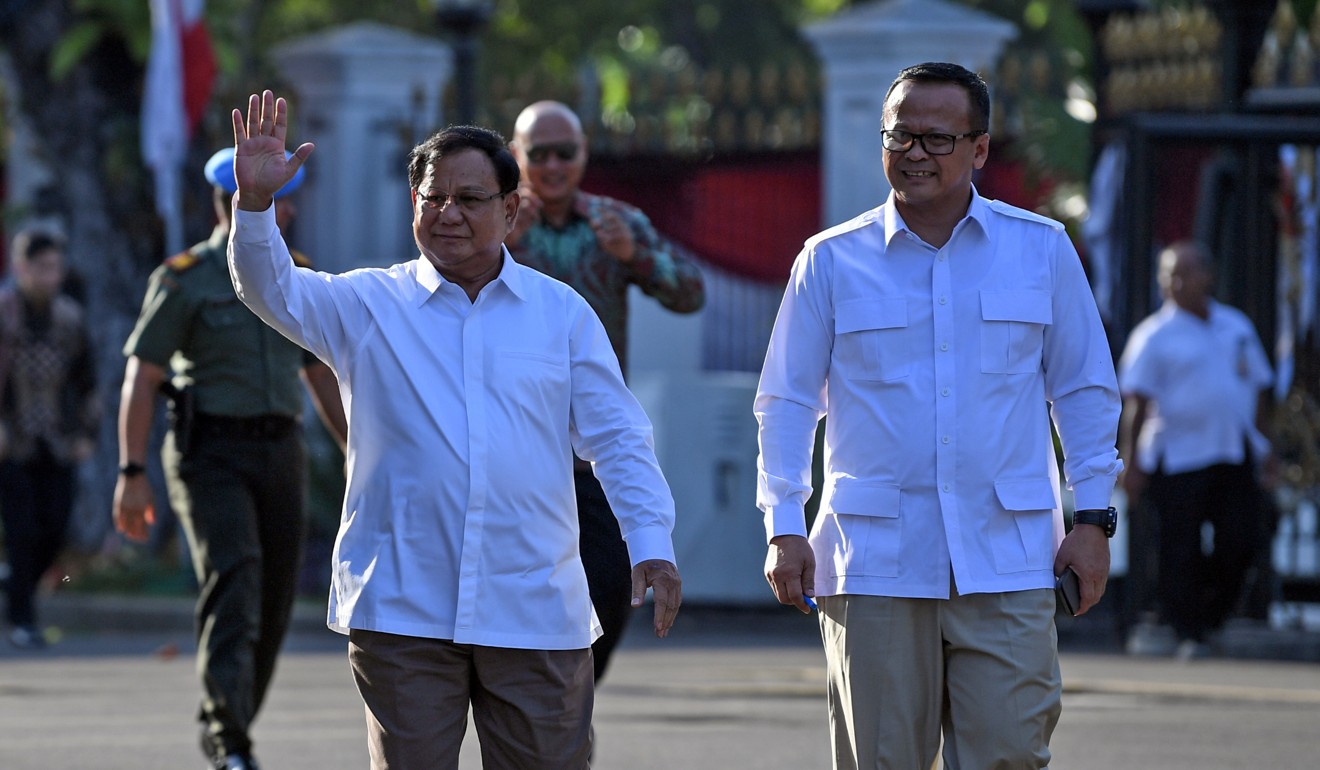
Another senior Gerindra politician, Edhy Prabowo (no relation to Prabowo Subianto), is Minister of Marine Affairs and Fisheries, replacing Susi Pudjiastuti. This comes as another surprise, given the latter’s popularity for getting tough on fishing vessels that encroach into Indonesian waters. The hashtag #WeWantSusi started trending on Twitter after Edhy’s appointment.
Jokowi was clear from the start about his intention to bring Gerindra – the third-largest in Parliament with 78 seats – into the coalition of parties backing him. With a total of 427 national parliamentarians from six political parties aligned with Jokowi, this will help Jokowi to expedite the enactment of two omnibus laws on job creation and small-medium enterprises. The two laws would amend several laws seen as obstacles for investment.
Including Gerindra in the cabinet can also be seen as a strategic move for Jokowi’s plan to shift the capital from Jakarta to East Kalimantan, because Prabowo controls 220,000 hectares of land in that province.
While there was continuity in key ministries including finance, foreign affairs and environment and forestry, Jokowi picked a young tech founder to head the education ministry. US-educated Nadiem Makarim, 35, who grew ride-hailing start-up Gojek into a US$10 billion company, will be education minister.
Jokowi said he hopes Nadiem will seek breakthroughs in creating a more dynamic workforce, as well as promote the links between the industry and technology sectors. This suggests that vocational and entrepreneurship programmes will be the focus of Indonesia’s education sector.
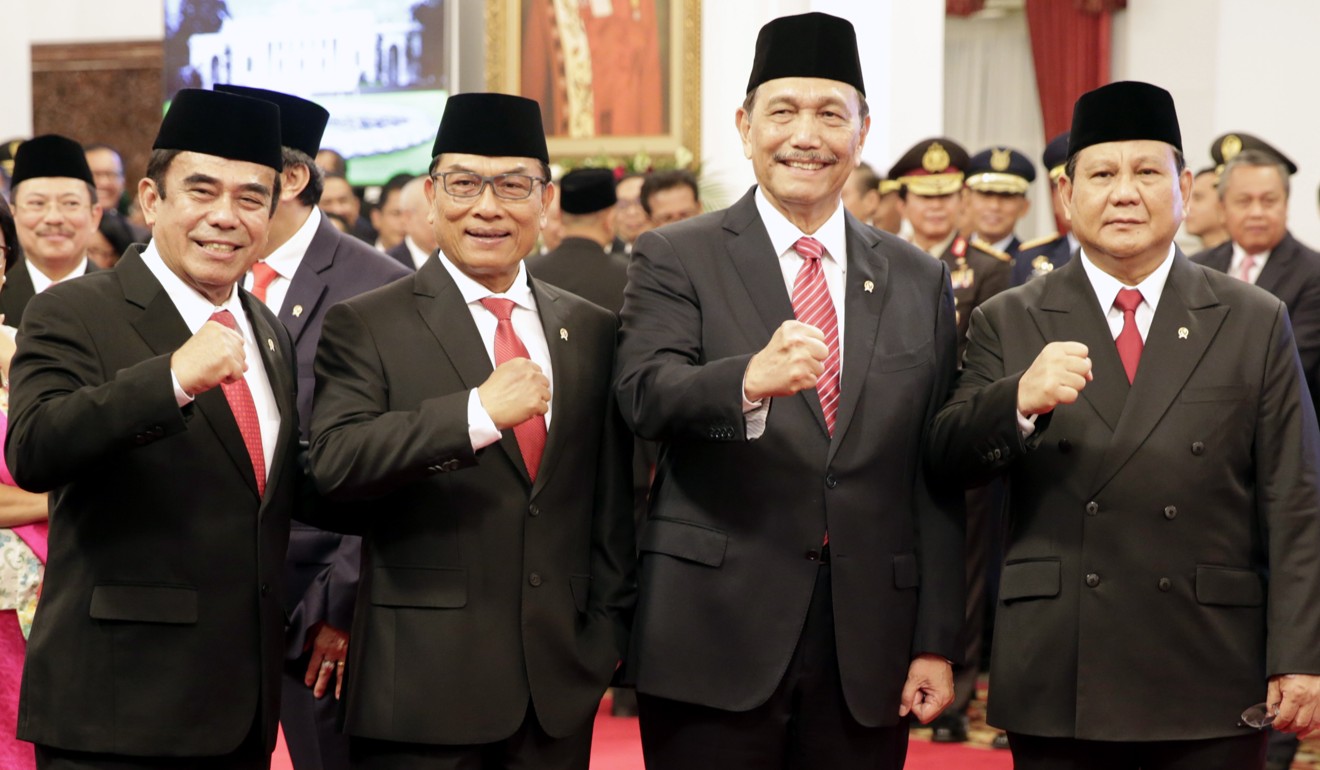
Another point of interest is Jokowi’s appointment of a retired general Fachrul Razi as Minister of Religious Affairs. The post usually goes to a senior politician of a Muslim party in the ruling coalition. Jokowi says Fachrul will tackle issues related to growing radicalism that the majority-Muslim nation is grappling with.
On the economic team, anticipating rising global uncertainties and declining global growth prospect, the selection of the ministers indicates Jokowi’s priorities in terms of maintaining macroeconomic stability and promoting investments.
Sri Mulyani’s reappointment as Minister of Finance reflects Jokowi’s trust in the minister maintaining a sound fiscal policy and continuing unfinished reform concerning the country’s tax regime. She will also ensure the state budget is used efficiently.
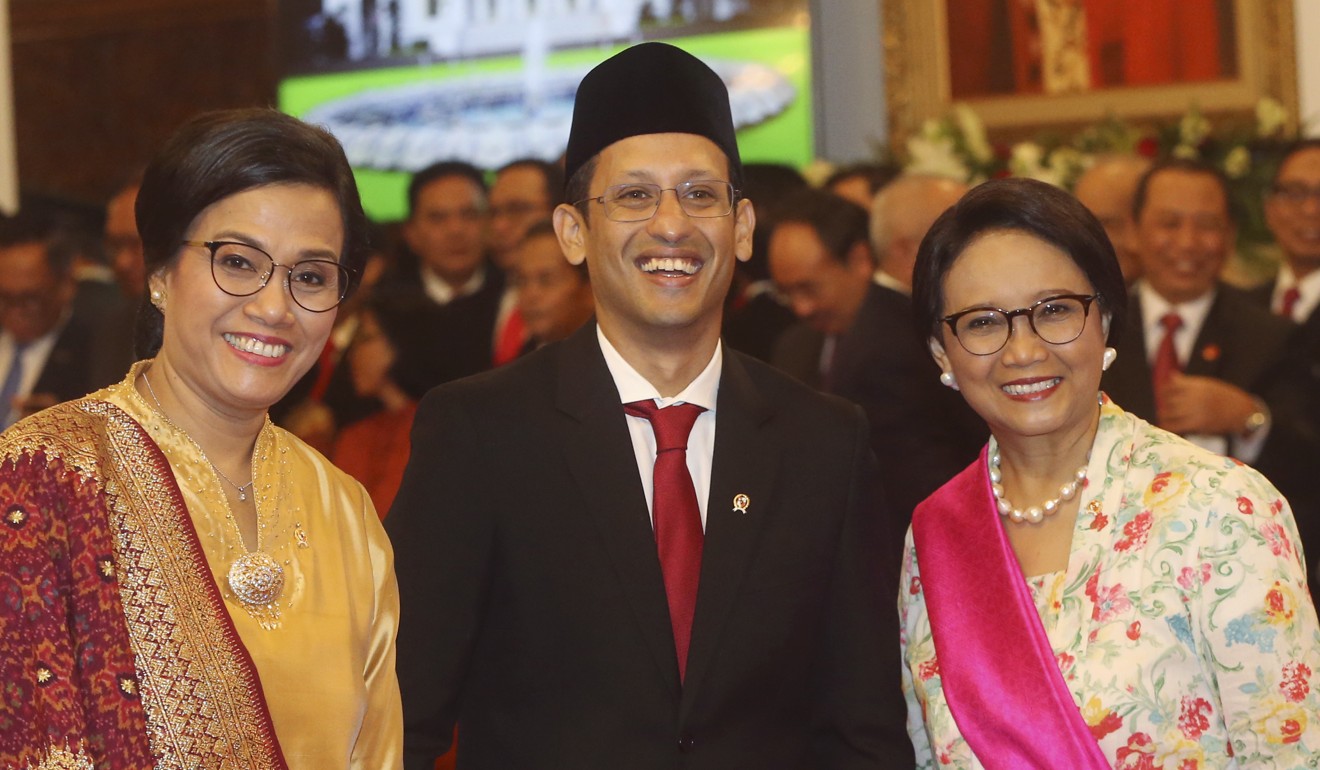
Luhut Pandjaitan maintains his role as the Coordinating Minister for maritime, transport, energy, mineral resources, fisheries, tourism. He has been described as a “super” minister for playing a strategic role in many major investment deals. Jokowi has given him a new investment portfolio and made him the point person for China affairs. In April this year, Luhut led presentations to business leaders in Beijing on the sidelines of forum on the Belt and Road Initiative(BRI).
For the second term, Jokowi has entrusted Luhut to oversee maritime connectivity projects, the development of the petrochemical and biodiesel sectors, and the development of smelters for mineral processing. Jokowi has said Indonesia should no longer rely on resource-extractive industries, but move towards higher value-added processing industries, which will bring more foreign exchange for the country’s exports.
Jokowi has also appointed two businessmen to roles driving efficiency and innovation. Erick Thohir, a media and entertainment mogul who formerly owned football club Inter Milan and was Jokowi’s re-election campaign manager, will head the Ministry of State-Owned Enterprises (SOEs). The ministry oversees companies such as Pertamina (oil and gas) and Inalum (mining and smelter) that contributed more than 10 per cent to Indonesia’s tax revenue in 2018. However, with only 15 per cent of 142 SOEs being profitable, Thohir has his work cut out for him.
Wishnutama Kusubandio, co-founder of terrestrial TV channel NET TV and the creative director of the opening and closing ceremonies at the 2018 Asian Games held in Jakarta and Palembang, is the new Minister of Tourism and Creative Economy. His agenda includes promoting tourism events and boosting job creation. Wishnutama will also ensure the smooth implementation of the “10 New Balis” initiative, launched by the previous administration.
Despite the criticism, the markets have welcomed the new cabinet, with the share prices of SOEs listed on the Jakarta Stock Exchange rising on Wednesday. And with Jokowi corralling the majority of political factions in the House into his administration, he has the opportunity to be bolder to push for bureaucratic reforms and deregulation in his second term.